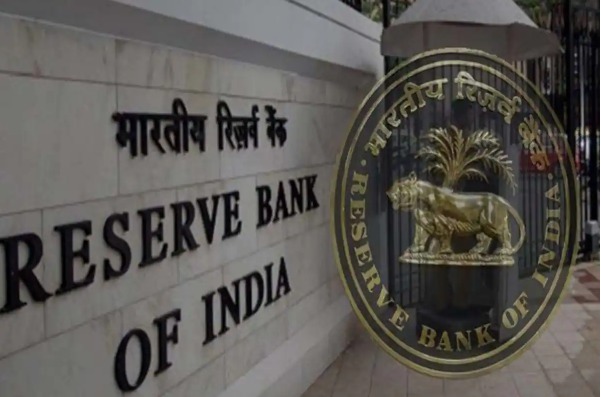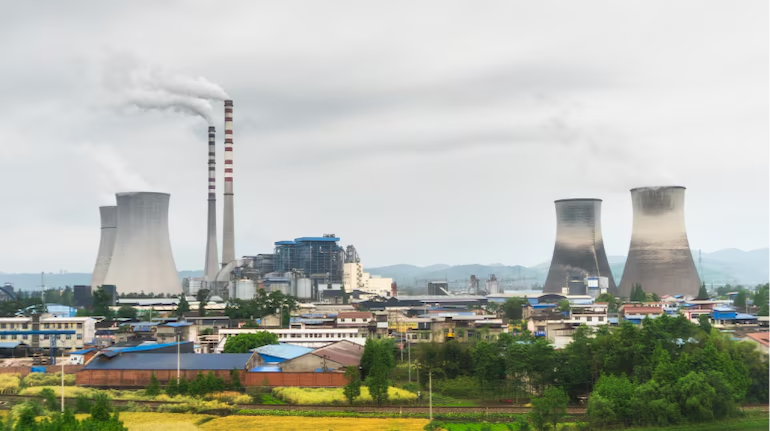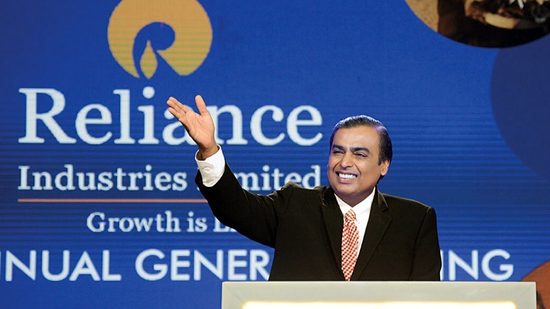
In the upcoming MPC decision, the RBI is expected to increase the rbi interest rate by 35 basis points. On December 7, Shaktikanta Das, governor of the Reserve Bank of India (RBI), will make the bimonthly monetary policy announcement. It will be the final announcement made by the monetary policy committee (MPC) in 2022. The repo rate has increased by 190 basis points from 4.4 percent in May to 5.9 percent in September so far this year.
Following a 40 basis point rate increase on May 4, the RBI increased the repo rate three more times, by 50 basis points, on June 8, August 5, and September 30.
In order to lower demand in the economy and bring inflation down, the repo rate is raised. Retail inflation in India has decreased from 7.79% in April to 6.77% in October as a result of rate increases. However, it can also cause the economy’s economic activity to slow down. The RBI must therefore balance the rate increases.
Sakshi Gupta, principal economist at HDFC Bank, stated that central banks throughout the world are struggling to balance growth and inflation. “For the RBI, the trade-off has been less pressing as opposed to the US Fed where inflation is almost four times of their objective,” the author writes. “Given that inflation is beginning to show indications of deceleration and GDP continues to largely hold up.”
As we approach 2023, Gupta continued, India is probably nearing the conclusion of its cycle of rate increases, and the front-loaded rate increases are expected to keep inflation and its second-round effects under check.
In addition to an off-cycle 40 bps rise in repo in May, India’s rate-setting panel has increased the benchmark lending rate by 50 bps in each of its last three meetings since June. The current repo rate is at a three-year high of 5.9% as the central bank intensified its battle against the inflation rate’s escalating pace.
Retail inflation, one of the important parameters the RBI considers when determining its monetary policy, dropped in October from 7.4% in the previous month to a three-month low of 6.7%. However, it continued to be above the RBI’s tolerance range of 2–6% for the tenth consecutive month.
Rbi to hike interest rate tomorrow, say experts:
The RBI is anticipated to hike the interest rate by 35 basis points in the upcoming MPC announcement.
It would be sensible to increase rate hikes by a lesser magnitude than in the past given that the effects of previous rate hikes are now being felt in terms of a slowing of economic activity. In the MPC decision tomorrow, a 35 basis point rate increase is anticipated.
According to a source from MNS, “there is anticipation that the MPC will go for a mild interest rate hike to the tune of 25-35 basis points amid evidence of lowering inflation and economic growth tapering.”
We think that the current terminal rate may be 6.25 percent, he continued.
The rate increase is probably going to be less than the 50 basis point increase that occurred previously.
The RBI is anticipated to continue its attempts to control inflation, for which RBI interest rate hike of 30 to 35 basis points is predicted in the upcoming review, according to a source from MNS.”The Indian economy is giving mixed signals emanating from the current circumstances,” he added.
“The RBI may decide to cut down the pace of rbi interest rate hikes in light of a drop in commodity prices and some early indications of inflation decreasing. In the future meeting, we anticipate the RBI to announce an interest rate hike that is 25 basis points less, according to Pankaj Pathak, fund manager for fixed income.
We have yet to see the effects of previous rate increases and liquidity tightening measures. As a result, there is a chance that overly strict monetary policy will harm the growth recovery while it is still in its infancy.
As opposed to boosting rates in advance, he continued, “We expect the RBI to be more data-dependent and reactive moving forward.”
Slow economic growth, according to Bank of Baroda Chief Economist Madan Sabnavis, was the primary factor in the MPC’s rate decision this time.
The sluggish GDP growth and rising inflation of above 6% would be the backdrop against which the RBI will present its monetary policy. We do think the MPC will continue raising rates this time around, but the increases will likely be smaller—25 to 35 bps. More specifically, we think that the financial year’s terminal repo rate would be 6.5%, which suggests that there will be another rate increase in February, according to Sabnavis.
Due to sluggish growth in the manufacturing and mining sectors, India’s economic growth for the July-September quarter decreased to 6.3% from 8.4% a year earlier and 13.5% in the prior quarter.
Sonal Varma and Aurodeep Nandi, two economists at Nomura, stated in a paper that they think India’s growth rate cycle has peaked and a general slowdown is under way. Growth is likely to be hampered by the anticipated slowdowns in Europe and North America as well as China’s weak economy, while Russia’s attack on Ukraine continues.
In order to reduce inflationary pressures, the RBI is expected to hike interest rates by a lesser 35 basis points to 6.25% in December, according to a Reuters poll. A 35 bps increase was forecasted by SBI in its most recent report, calling it “imminent” or the “new normal.”
Following a succession of interest rate increases of 50 basis points by the RBI, there are expectations for a more gradual rate increase. These expectations are in line with predictions that the U.S. The Federal Reserve would switch to smaller rate increases at its policy meeting this month.
The RBI may get concerned about the growth’s moderating pace and turn its attention away from inflation.
Nine out of ten banks surveyed by the Economic Times anticipate a 35 basis point rate increase from the government. While five of the nine forecast a rate rise of 35 basis points, two think it will be in the 25–35 bps range, and the remaining two predict a rate increase of 25 bps.
“Markets anticipate a slightly dovish tone from the MPC, even though an interest rate increase of 35 basis points is widely discounted in the yields. The voting will also be closely observed to determine if more participants agree that future rate moves should only be made after a careful evaluation of the previous rate hikes, according to Trust Mutual Funds Fund Manager Anand Nevatia.
On December 7, at 10 AM, RBI Governor Shaktikanta Das will make the rate announcement.
Das will provide a webcast of the rate decision on Wednesday at 10 am in Mumbai and hold a news conference at 12 pm.
Here’s what else to watch out for:
- Peak Rates:
Peak Rates Analysts will be closely monitoring any signs that the cycle of rbi interest rate hikes is about to cease. Jerome Powell, the head of the US Federal Reserve, has already indicated a downward turn, which gives Indian policymakers comfort.
A dovish stance would be interpreted by bond market participants in particular as a definite indication that rates had peaked. Relief may come from declining commodities prices and declining demand.
The pace of rate hikes will be moderated since external headwinds have subsided significantly following the recent decline in the value of the dollar, the rise in oil prices, and the US Fed’s anticipated switch to lower rate hikes, according to ANZ Group economist Dhiraj Nim. Examining the monetary policy committee’s position’s phrasing is essential since “both nominal and real policy rates are now approaching growth restricting territory.”
Sajjid Chinoy of JPMorgan Chase and Co. stated that the 35 basis point rbi interest rate increase in December may have been the last of the cycle, despite the fact that most analysts anticipate the RBI to seek another rate increase in February.
- Stance Change
However, economists don’t always agree on the likelihood of a shift in opinion. According to Chinoy, the position might remain the same at “removal of accommodation” while retaining a circumspect tone.
Others, though, believe that a shift in position might provide the RBI freedom to adjust its responses in response to new information. According to a source from MNS, “We anticipate a unanimous MPC vote to shift the policy posture to neutral from accommodation.”
- Growth-Inflation
The governor’s position on the growth-inflation trade-off will also be closely monitored, particularly in light of Finance Minister Nirmala Sitharaman’s statement that the government now places the greatest emphasis on economic growth.
Global headwinds will be a significant danger to the outlook for growth in the next year, according to Kaushik Das of Deutsche Bank AG, who also predicted that rate hikes won’t continue past the December decision. The bank anticipates that the RBI will maintain its 6.7% and 7%, respectively, inflation and growth predictions for the fiscal year ending in March.
While refusing to divulge specifics of the letter it sent to the government outlining why it failed to keep inflation within its 2%-6% target zone for three consecutive quarters, the RBI may also provide a broad outline of the path to control inflation.
- Reserves, Rupee
The central bank now has more power over the exchange rate thanks to India’s rising foreign exchange reserves, which increased by almost $20 billion in the last three weeks to $550.14 billion as of Nov. 25. November was the rupee’s first monthly increase of the year.
According to DBS Bank Ltd., the repo rate is currently estimated to peak at roughly 6.50% by the first quarter of 2023, indicating that markets are pricing for the impending end of the RBI’s hiking cycle based on the recent rally and dramatic flattening of the rupee swap curve. Following a breach above 7.5% in October, benchmark rates have dropped, supported by a decline in US yields.





